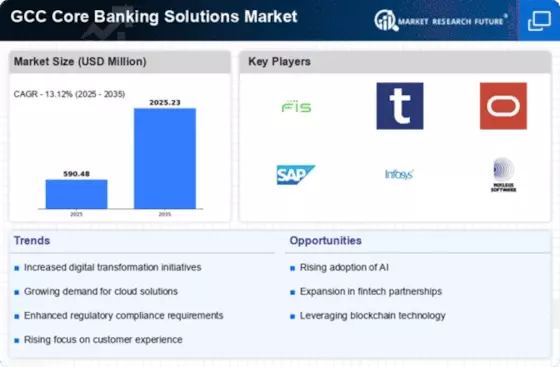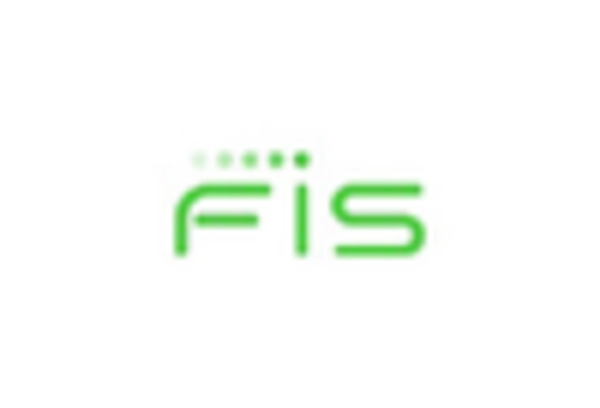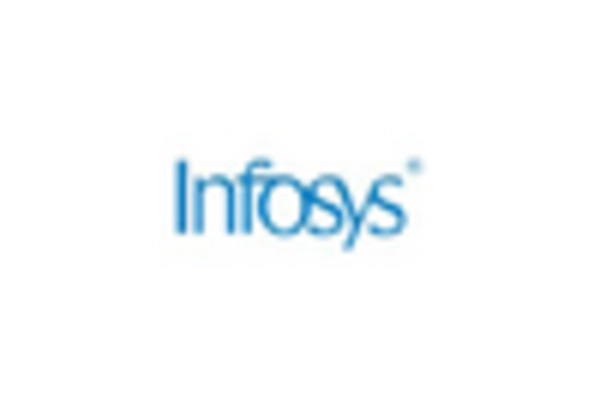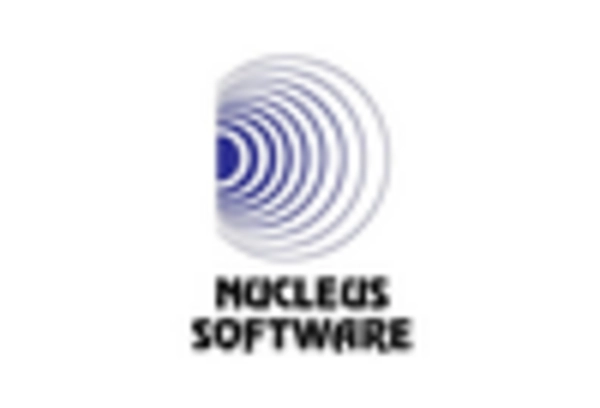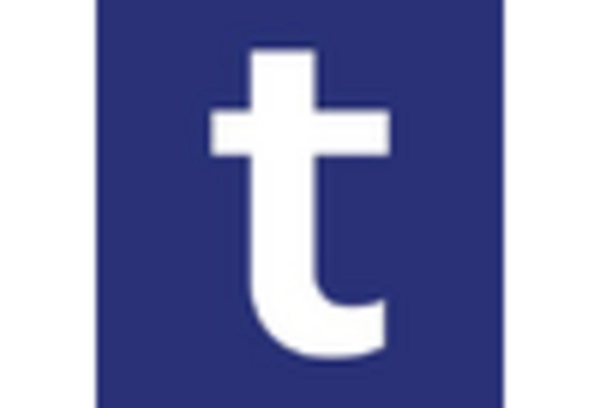Digital Banking Adoption
The GCC Core Banking Solutions Market is experiencing a notable shift towards digital banking adoption. With a significant percentage of the population in the Gulf Cooperation Council (GCC) region utilizing smartphones and internet services, banks are compelled to enhance their digital offerings. As of 2025, it is estimated that over 70% of banking transactions in the GCC are conducted online. This trend is likely to drive the demand for advanced core banking solutions that facilitate seamless digital transactions, improve operational efficiency, and enhance customer engagement. The increasing preference for mobile banking applications and online services indicates a robust market potential for innovative core banking solutions that cater to the evolving needs of tech-savvy consumers.
Focus on Financial Inclusion
The GCC Core Banking Solutions Market is increasingly focusing on financial inclusion as a key driver of growth. Governments in the region are implementing initiatives aimed at providing banking services to underserved populations, including low-income individuals and small businesses. This push for financial inclusion is likely to create demand for core banking solutions that are adaptable and scalable, allowing banks to reach a broader customer base. For instance, the Saudi Arabian Monetary Authority has launched programs to enhance access to financial services, which may lead to increased adoption of innovative core banking technologies. As financial institutions strive to meet these inclusion goals, the market for core banking solutions is expected to expand significantly.
Regulatory Framework Enhancements
The GCC Core Banking Solutions Market benefits from a supportive regulatory environment that encourages innovation and modernization. Regulatory bodies in the region have introduced frameworks aimed at enhancing financial stability while promoting technological advancements. For instance, the Central Bank of the UAE has implemented guidelines that facilitate the adoption of fintech solutions within traditional banking systems. This regulatory support is expected to foster a conducive atmosphere for the development and deployment of advanced core banking solutions, enabling banks to comply with evolving regulations while enhancing their service offerings. The proactive stance of regulators in the GCC region is likely to stimulate investment in core banking technologies, thereby driving market growth.
Technological Advancements in Banking Solutions
The GCC Core Banking Solutions Market is witnessing rapid technological advancements that are reshaping the banking landscape. Innovations such as artificial intelligence, blockchain, and cloud computing are being integrated into core banking systems, enhancing their functionality and efficiency. As banks in the GCC region seek to leverage these technologies, they are likely to invest in modern core banking solutions that offer improved data analytics, security, and customer service capabilities. The adoption of cloud-based core banking solutions is particularly noteworthy, as it allows for greater flexibility and scalability. By 2026, it is projected that cloud-based solutions will account for a significant portion of the core banking market in the GCC, reflecting the ongoing transformation of the banking sector.
Increased Competition Among Financial Institutions
The GCC Core Banking Solutions Market is characterized by heightened competition among financial institutions striving to differentiate themselves in a crowded marketplace. As new entrants, including fintech companies, emerge, traditional banks are compelled to innovate and enhance their core banking systems. This competitive landscape is driving investments in technology upgrades, with banks allocating substantial budgets to modernize their core banking solutions. According to recent estimates, banks in the GCC are expected to invest over USD 1 billion in core banking technology by 2026. This influx of investment is likely to result in the development of more sophisticated, customer-centric banking solutions that cater to the diverse needs of consumers.


